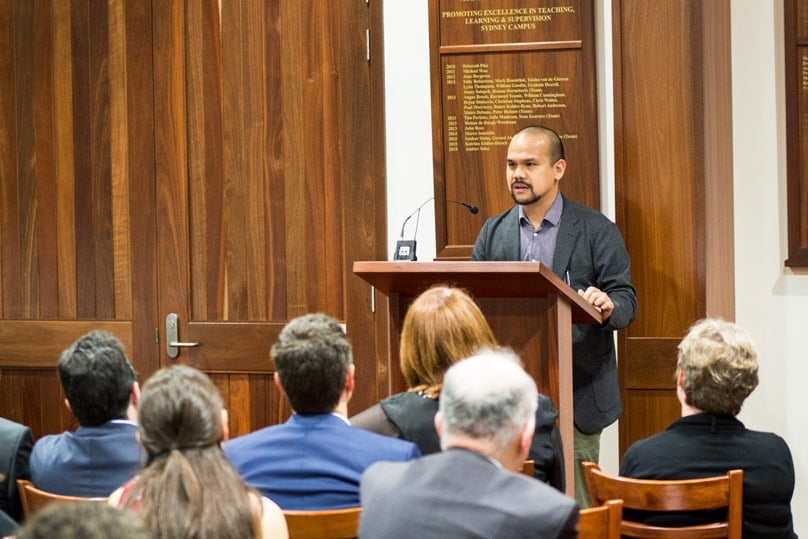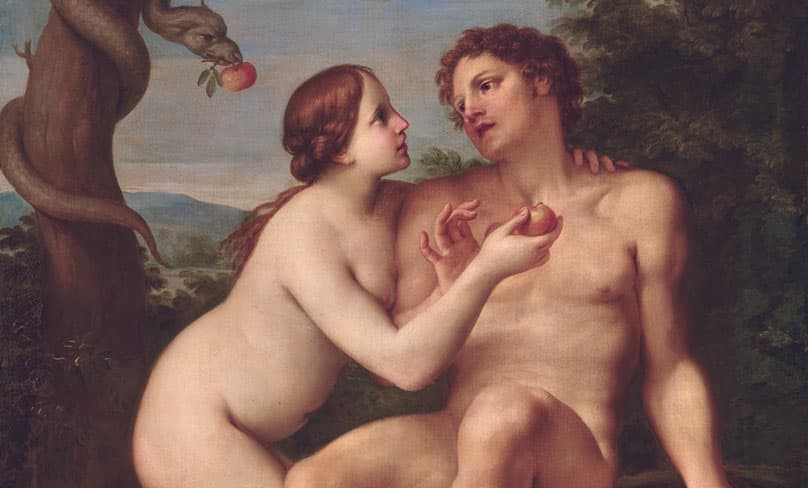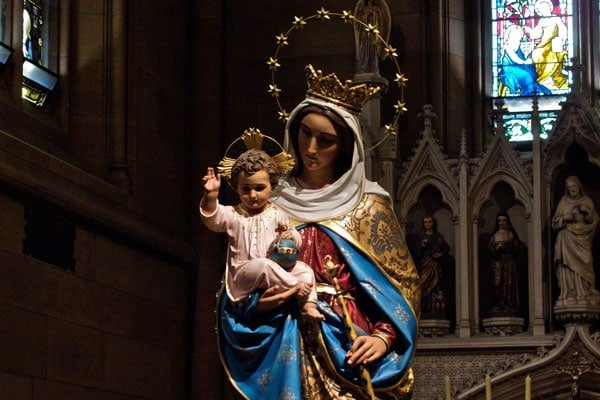
Recently, the School of Philosophy and Theology at the University of Notre Dame held the third instalment of its conference series on Theology at the beginning of the third millennium. The focus this time was on theological anthropology, and featured clergy, college presidents, lecturers and students from as far afield as Canada.
The topics were as wide ranging as its cast of speakers, going from famous luminaries such as Joseph Ratzinger, Josef Pieper and John Henry Newman, to less well-known but no less illuminating voices such as Eric Maschall and Theodor Steinbüchel.
Some may ask: why should theologians bother with accounts of persons? Should they not focus on the things of heaven, where our mortal lives are ultimately oriented?
There are three ways to answer this question.
Giving a Christian account of the human person has been a long standing tradition of the Church since its inception.
Yet conferences like this one don’t simply continue this tradition – they also respond to a growing clamour for the protection of human dignity as it is assaulted in different forms both locally and internationally in the modern era, whether it concerns war, abortion, gender, wage theft, refugees or human trafficking.
Made in the image of God, the human person bears within him or herself the very imprint of that which is unfathomable
As Dignitatis Humanae quite rightly says, the empirical reality is that there is “A sense of the dignity of the human person [which] has been impressing itself more and more deeply on the consciousness of contemporary man.” In continuing a theological engagement with anthropology, the Church merely affirms the identity that it defined at the beginning of Gaudium et Spes as one that shares in “The joys and the hopes, the griefs and the anxieties” of this age.
The second way to answer the question is that we don’t lose sight of the heavenly by turning our attention to the human. Indeed, if theology is investigations into the divine mysteries, these continue on in an investigation of what John Paul II calls “the mystery of the human person”.

Made in the image of God, the human person bears within him or herself the very imprint of that which is unfathomable. As the-then Karol Wojtyla wrote in 1968 to the Jesuit theologian Henri de Lubac, his devotion to investigating this particular mystery stemmed from his response to “the evil of our times” which he said “consists in the first place in a kind of degradation, indeed in a pulverisation, of the fundamental uniqueness of each human person. This evil is even much more of the metaphysical than of the moral order.
To this disintegration, planned at times by atheistic ideologies, we must oppose with, rather than sterile polemics, a kind of recapitulation of the mystery of the person.
Thirdly, we can take St John Paul II’s observation further to say that without an account of the human person that is theological, the defence of human dignity is on shaky ground. Precisely because the human person is a mystery, it is – paradoxically – only the mysteries of God that can form the only sure foundation for humanity’s defence.

Defending human dignity in the third millennium is another mode of the unfolding of the Church’s mission as custodian of the mystery of the incarnation.
Dr Matthew Tan is a senior lecturer in Theology at The University of Notre Dame Sydney
